| MARCH 2024 NEWSLETTER |  |
|
View in browser | Print |
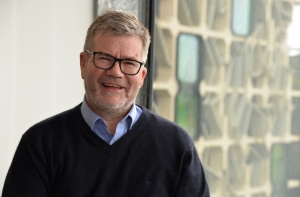
It has been a very busy start to 2024 for the staff and students of the Wicking Dementia Centre.
A highlight has been the recognition of our dementia education programs through accreditation with Alzheimer’s Disease International (ADI). ADI is the peak organisation representing country-based associations for dementia across the globe. A team from ADI had a close look at the variety of our free short courses as well as the undergraduate and postgraduate degrees and met with a range of stakeholders including students that have undertaken our courses. The ADI team was particularly impressed with our students who are seeking to apply what they have learnt to support people with dementia. We are very proud of accreditation by ADI as this represents recognition as this represents recognition of the work of a large number of staff in building our various courses over the last decade. Accreditation will also help us extend the reach of various courses to those who may benefit from them. I look forward to sharing with you over the coming months, updates on new projects that the Wicking Dementia Centre are involved in, such as the Tasmania Parkinson's Project and the DREAM Project.
|  | | New Partnership | 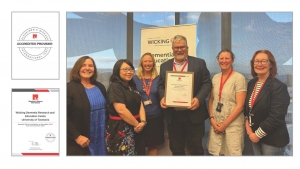
New partnership with Alzheimer's Disease International (ADI)
The Wicking Dementia Research and Education Centre announced in January 2024 its successful application for accreditation with Alzheimer’s Disease International (ADI), for our suite of Aged and Dementia Care Courses! The Centre accepted the award via a virtual ceremony on Wednesday the 7th of February 2024. Professor James Vickers - Director Wicking Dementia Research and Education Centre and Professor Denise Fassett, Dean of the College of Health and Medicine both spoke at the ceremony. The Wicking Dementia Centre is the first in Australia with this kind of accreditation. Congratulations to all staff who were involved with the application. Here is the link to the announcement on ADI’s webpage, and some general information about what accreditation means for the Centre.
More Information
| | Parkinson's Symposium | 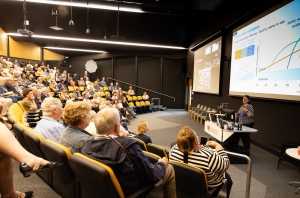
The 2024 Parkinson's Symposium with guest presenter Professor Glenda Halliday.
The Parkinson's Symposium was held on Monday 19 February 2024, and it was the official launch of the Tasmania Parkinson's Project. Head-lining the symposium was Professor Glenda Halliday AC PhD FAA FAHMS, a leading neuroscientist (2022 NSW Scientist of the year) specialising in neurodegeneration. Glenda presented new information on Parkinson’s; how it’s caused, what happens to a person, new ways for diagnosis, and concepts for treatments and cures. The symposium included presentations from clinicians and researchers about the early and precise detection of Parkinson’s Disease, Duodopa pumps, apomorphine, deep brain stimulation, early multidisciplinary input into the disease and the development of a Parkinson’s registry in Tasmania. The symposium was a success with over 700 people registered to attend either in person or online. To listen to Professor Glenda Halliday and the other presenters from the symposium, click on the links below.
|
|
|
| Join the Tasmania Parkinson's Project | 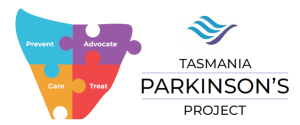
Are you interested in being contacted about Parkinson’s disease research?
The Tasmania Parkinson's project aims to improve the lives of people with Parkinson's through research and education.
What will you be asked to do?
You will simply be asked to enter your name and email address into a website. This will usually take less than a minute to do. We will then email you when we have research studies that may be of interest to you. Who can register their interest?
Anyone at all - whether you have Parkinson’s or not - the more people that register, the more we can do to improve care, research and education. Register your interest in the Tasmania Parkinson’s Project by clicking the link below. Please encourage anyone you know who has Parkinson’s or an interest in Parkinson’s to also register their interest.
|  | | Our Research |
Modifiable dementia risk factors and AT(N) biomarkers: findings from the EPAD cohort.
Congratulations to Research Fellow Eddy Roccati and the Wicking Dementia Centre team for their recent publication of their research into modifiable dementia risk factors and three Alzheimer’s disease biomarkers AT(N). This publication stemmed from Team Wicking's NeuroToolKit Hackathon win in 2022, which was a big collaboration involving local and international researchers. Roccati, P., Bindoff, A., Collins, J., Eastgate, J., Borchard, J., Alty, J., King, A. E., Vickers, J. C., Carboni, M., Logan, C., & EPAD Consortium. (2024). Modifiable dementia risk factors and AT (N) biomarkers: Findings from the EPAD cohort. Frontiers in Aging Neuroscience, 16, 1346214. Read Full Article
| 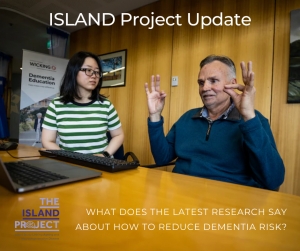
ISLAND Project Update
What does the latest research say about how to reduce your dementia risk? Do you know that sleep, socialising, challenging your brain and small amounts of alcohol have all been found to assist in improving brain health? Click on the link to learn more about the latest research on how to reduce your dementia risk. Image: ABC News, Luke Bowden Read More Here
| | Our People - Emily Garratt | 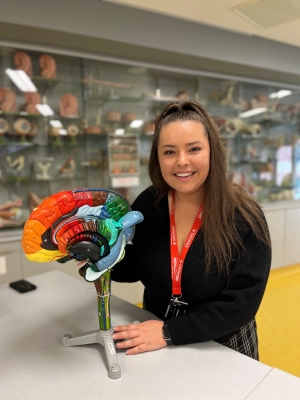
ANS indigenous travel award
As a palawa woman, my main goal for the future is to share my passion and knowledge in neuroscience. I aim to make positive contributions to the field and ensure all Australian’s have an equitable and healthy future. In 2023, the Australasian Neuroscience Society (ANS) offered inaugural scholarships for Aboriginal and Torres Strait Islander and Māori students and researchers to attend the annual general meeting. I would like to sincerely thank ANS and its sponsors for affording me the opportunity to attend ANS in Brisbane via this award.
The ANS travel award improved my confidence and inspired me to proudly introduce myself as an indigenous woman in research. Meeting other students and researchers passionate about neuroscience was invaluable. A particular highlight from the conference was networking, with many relationships developed over the 3 days. It was also a profound experience hearing the myriad of pathways people followed into neuroscience, and how there is no “right” way to have this career. Attending this conference inspired me to pursue a career in neuroscience and led me to apply for a PhD. I am grateful to now be the recipient of the prestigious Japanangka errol West Scholarship at the University of Tasmania and have just begun candidature based at the Wicking Dementia Research and Education Centre. My PhD will focus on microglia as central drivers of neuro-immunometabolism. I will study models of diseases such as obesity and diabetes and investigate the mechanisms of brain insulin resistance and how it promotes systemic insulin resistance. I look forward to working on this project with a great supervisory team of Drs Jenna Ziebell, Dino Premilovac and Darren Henstridge. I am extremely grateful to ANS for giving me the opportunity to attend the conference, as it was an important milestone toward achieving my goals.
| | Our Free Education |
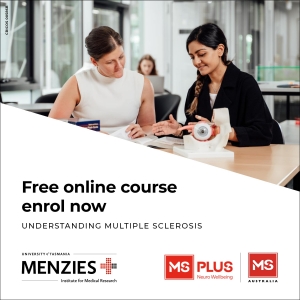 | 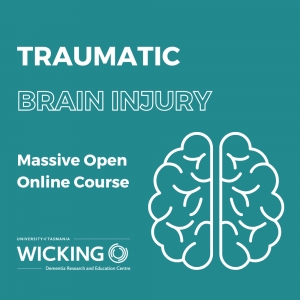 |
FREE Understanding Multiple Sclerosis MOOC | FREE Traumatic Brain Injury MOOC |
'Understanding Multiple Sclerosis (MS)' is a free online course that aims to improve understanding and awareness of MS. Members of the public will increase their knowledge of MS-related issues and those in the MS community will be empowered to create and contribute to personalised MS management plans. The course is designed for anyone with an interest in multiple sclerosis. Course opens on 11 March 2024.
ENROL TODAY | Did you know that a Traumatic Brain Injury (TBI) can occur if you are involved in a car accident, have a fall, a physical altercation or from a sporting accident? This online course aims to raise awareness and build knowledge to reduce risk, as well as improve management and rehabilitation outcomes for people who have experienced a TBI. Course opens on 25 March 2024.
ENROL TODAY |
|
|
Stay connected:
|




|
utas.edu.au/wicking
|
| |
|
|